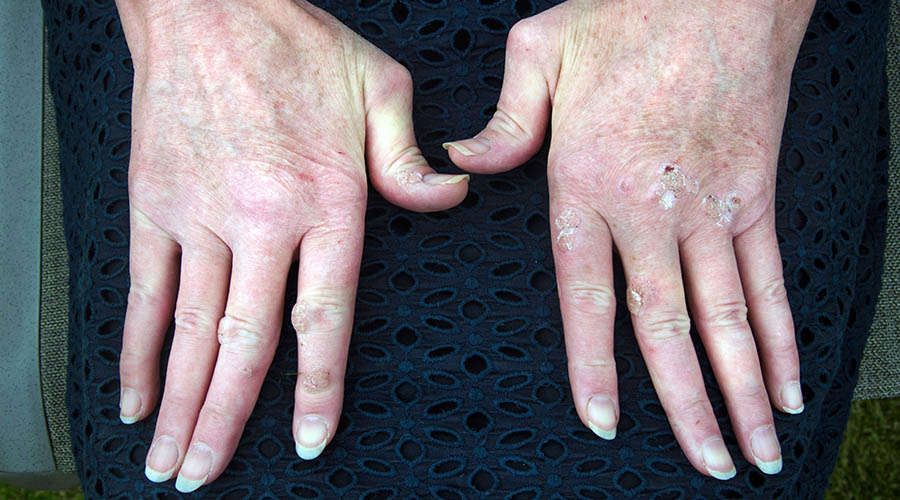
Identifying risk factors that can differentiate PsA from skin-only psoriasis
What was already known?
Psoriatic arthritis (PsA) is an inflammatory condition causing pain and stiffness in joints and tendons. Approximately one third of patients with psoriasis will go on to develop PsA resulting in a reduction in their quality of life caused by increasing disability and additional health complications.
What was discovered?
Our recently published study identified a genetic risk variant, referred to as a single nucleotide polymorphism (SNP), which is a single change in DNA that has a higher frequency in DNA taken from large numbers of patients with PsA when compared to healthy control samples. This is referred to as association and is interpreted as being important in the disease process.
When we investigated this SNP for association with skin-only psoriasis, we did not find any evidence for association.
The SNP is within in the gene PTPN22 which is known to be associated with many other autoimmune diseases including rheumatoid arthritis (RA). Our analysis demonstrated that the association is not due to the presence of unknown RA samples in the study group.
Why is it important?
A key area of research within the Arthritis Research UK Centre for Genetics and Genomics in the Centre for Musculoskeletal Research is the identification of risk factors that can differentiate PsA from skin-only psoriasis; this will allow us to understand the underlying cause of disease and ultimately help identify psoriasis patients at high risk of developing PsA, allowing early treatment to be introduced to reduce the impact of PsA.
What next?
Our research has now identified three genetic risk factors that are differentially associated with PsA and skin-only psoriasis; we plan to expand our studies by including an even greater number of samples to identify even more risk factors. We can then evaluate the use of these genetic risk factors for predicting which patients with psoriasis are at high risk of developing PsA.
Publications
(Bowes J, et al. (2015). Ann Rheum Dis 28 Apr. 2015. E-pub ahead of print. eScholarID:262725 | PMID:25923216 | DOI:10.1136/annrheumdis-2014-207187)

0 Comments